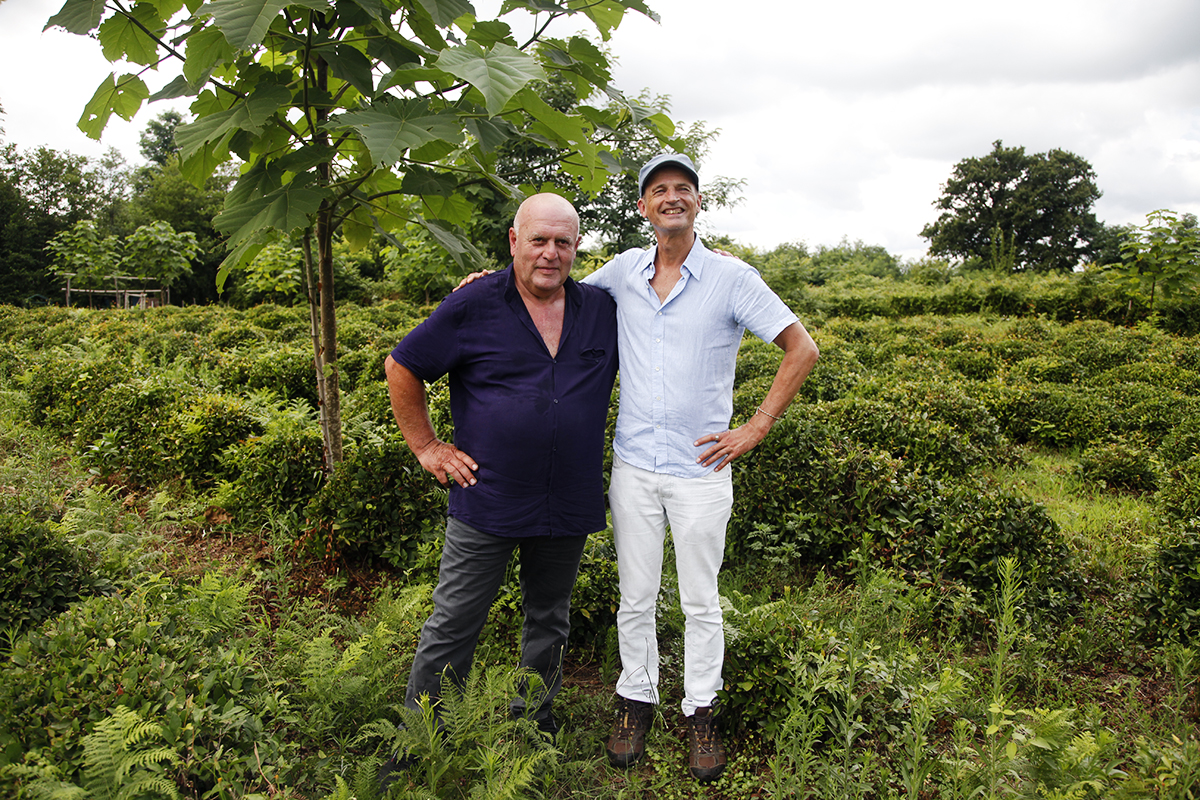This cup, shining in the morning light, is my way of wishing everyone a Happy New Year – a peaceful year in a troubled world. We all have different tastes; I wouldn’t have chosen this cup for myself. I thought it looked it a bit pretentious on its silver tray, sitting on a starched napkin. It’s not my usual taste. Then I put the tray on the bed, and the cup looked elegant and charming in the early morning sun. This was in Tbilisi, in a former printing house converted into a hotel. Each to their own cup, each to their own tea. Let’s hope there is always room for difference, for listening to others. Let’s hope we are driven more by the desire to understand than to judge. By the desire for peace. Tea connects us; tea calms us. Happy New Year 2025!
Georgia
The joy of tea
You can travel the world sourcing, tasting and analysing tea. But it’s not often you get to actually make it – to pick the leaves, roll them in your hands, spread them out to wither, and watch them oxidise until it’s time to dry them. It’s a rare opportunity for a tea connoisseur.
Here in Georgia, Nathalie, our Human Relations Manager, and Charlotte, who runs our Rue Raymond-Losserand store in Paris, are discovering the joys of making tea for themselves.
They tasted it the next day. When this photo was taken, they hadn’t yet realised quite how special the whole experience would be, how proud they would feel. It was the first time they had crafted their own tea. An unforgettable experience.
Our Georgian friends
In these difficult times for Georgia, we’ve received this particularly moving message from one of our producer friends: “Every kilo of Georgian tea sold, especially in Europe, contributes to both our dignity and our survival.” Of course, we’re doing what we can for those with whom we work closely, and it’s in this spirit that I’m sharing his message with you. If you’ve never tasted tea from Georgia before, there are some delicious ones. White tea from Guria, for example. The harvest was very small. It’s a white tea produced in the same way as the well-known Bai Mu Dan from China.
In the Soviet era
In Georgia, the soviets left behind residential buildings that look as if they were built in the middle of nowhere. In the days when tea was an intensive industry, these buildings had a purpose. But today, with the rural exodus and many plantations disappearing under weeds, the same buildings evoke a bygone past.
Dense vegetation
In Georgia, tea grows mainly in the provinces of Guria and Imereti, where the prevailing westerly wind blows in moisture-laden clouds from the Black Sea all year round. These are mountainous, jungle-covered regions. The tea bushes weren’t tended for nearly 30 years, so between harvests, ferns and brambles must be uprooted in order to find them. This is a mammoth task for the small producers and their teams who, in the space of a fortnight, see their Camellia sinensis disappearing under the dense vegetation.
Georgia encourages small producers
During the Soviet era, Georgia produced a lot of tea for the whole of the USSR. But when it gained independence and the troops withdrew, there was nothing left of the production facilities but deserted buildings.
In the space of a few years, its annual tea production of 152,000 tonnes fell to just 1,800 tonnes. But since 2016, tea cultivation has been revived by the Georgian government, which is encouraging small producers to start new farms, produce quality tea and hire employees, with the aim of helping to stem the rural exodus.

